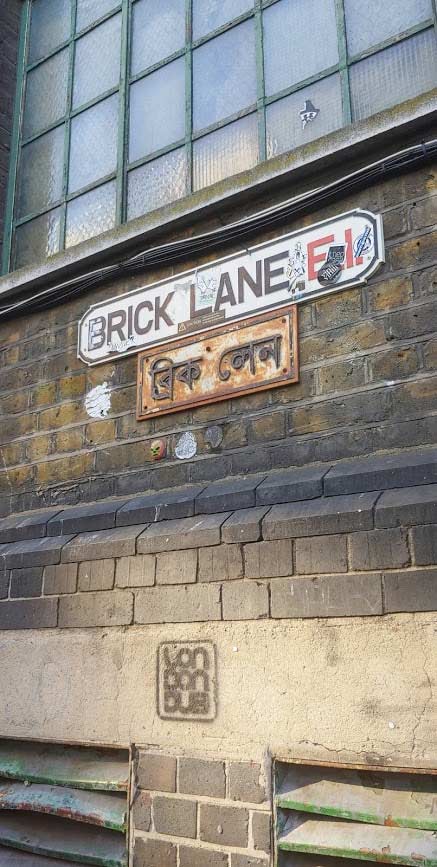At this point, to call London a "diverse" city is basically a cliche. Yet somehow, paradoxically, when I pictured London before this semester, I pictured well-dressed white people marching through soggy streets with sullen expressions, briefcases, and umbrellas. So when I arrived in London, at my flat in Shepherd's Bush, surrounded by women in hijabs, homely Indian and Caribbean takeaway shops, and African hair salons and stores, I was immediately excited to learn more about London's various migrant cultures.
For my project as a CEA CAPA Diversity Advocates Scholar, I chose to interview everyday people of color from the streets of London in order to better grasp the impact that British colonization - particularly of South Asia, Africa, and the Caribbean - continues to have. Inspired by the popular photoblog Humans of New York, I posted excerpts from these conversations on the Instagram account @_brownlondon_, so as to give the stories I collected a platform. As an African proverb goes, "Until the lion learns how to write, every story will glorify the hunter."
There is a reason why these stories are overlooked in our history textbooks. And whether or not I heard what I had expected to hear, by just listening and engaging in these conversations, I have learned more about London's cultural and historical landscapes than I ever could have done in a classroom.

From Brick Lane to Southall and from Brixton to Harlesden, the immigrant experience is varied, even among people who have come from the same country. Some immigrated to receive a better education and achieve more social mobility than they could in their home country, and others are multiple generations removed from immigration, while others still have fled war-torn states and persecution. Some are blunt and open about their experiences with racism and discrimination, and others skirt around the subject, either for fear of punishment for speaking out or genuine lack of such experiences. Some spoke for hours on end, recounting their whole life story, and some responded to me with curt, one-word answers. I spoke to artists, businesspeople, students, food vendors, and street performers. I spoke to teenagers and grandparents. But whether they realize it or not, every person that I spoke to represents a particular, unique aspect of the so-called "immigrant experience."

Among the most prominent commonalities that I noticed, especially among the immigrant generation, was a longing for the collectivistic spirit of their homelands. In London, many of them said, you could live in the same house on the same street for 10 years and never meet your neighbors. Some even expressed pity for the generation of kids born in London to immigrants, who would never know such a world, where they would be able to play more freely, where it is literally the responsibility of a whole village to raise the child. Though such admissions can be taken simply as nostalgia for these immigrants' childhoods, it is also important to consider the toll that such a drastic lifestyle change - especially later in life - can take on a person's mental health.
The other big trend that I noticed in my conversations was the importance of food to culture. Whether it was the Afghan woman who studied medicine and now sells Afghan food at Portobello Road on the weekends or the Grenadian businessman who eagerly recommended that I try One Stop Caribbean Takeaway in Harlesden, it was clear to me that, in an increasingly xenophobic world where cultural identities must often be contained within the home, food is a sacred expression of culture and an escape to home. This was my experience growing up, as well - I would go to school and eat sandwiches that my mother had attempted to make the "American" way, and come home to yogurt rice and lime pickle. But because I had nobody to share this experience with in my childhood, it has taken me until now to realize how such routine, mundane practices can be so profoundly grounding and connecting. The Goan woman whom I spoke to in Oxford said it best: "If you know how to cook, you will never be lost."
I was not able to record or post every single one of the conversations I had because many people did not feel comfortable attaching their face to their story and putting it online. But even with these individuals, I often had long and meaningful conversations. In most cases, whether people were comfortable with having their story told to strangers on social media or just wanted to talk to an eager young Indian-American student, the biggest lesson I've learned from this project is that everyone has a story to tell, and everyone wants to be heard.
Read more about our CEA CAPA Content Creators.

Leave a comment